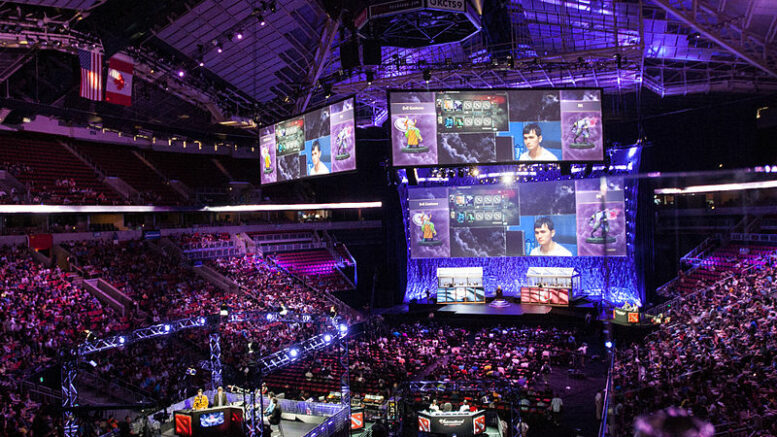What is eSports?
Nowadays almost everyone has the opportunity to compete against other players in a video game. In many games with multiplayer mode or online games we can participate in competitions. But these small competitions are not automatically eSports. In “eSports” the battle must be based on a certain seriousness. So it is not enough to simply compete against each other. The competition must follow certain rules and only certain games are allowed. Thus, games are only suitable for eSports, if the success of the game is not predominantly dependent on chance. The victory or loss of a participant should result from his tactical performance and his reaction speed and should not be due to luck.
Just like in real sports, eSports also differentiate between individual sports and team sports. Competitions can therefore take place between individual players, but there are also competitions in which teams compete against each other. The rules of the battle are derived from the rules of the computer game and the requirements of the competition organizer. Even if eSports does not really sound like “sports” in the first moment, there are numerous skills that a successful eSports player must have. Hand-eye coordination, reaction speed, spatial orientation, game overview, game comprehension, tactical orientation, stamina and foresighted thinking are only a selection of the requirements.
Criticism
Despite this, the question of whether eSports are real sports is still a matter of debate. The German Olympic Sports Federation has issued an expert opinion denying eSports’ admission to organized sports. The reasons are the lack of physical demands on the sport. The Sports Federation also criticizes that the rules, the game systems and the competitions in eSports are set by profit-oriented and globally positioned companies. Many sports researchers, representatives and players of eSports criticize this. With the necessary hand-eye coordination, reaction speed and other necessary skills, physical demands are indeed necessary in eSports. Furthermore, sports such as chess, golf and darts are also recognized as club sports.
Top 10 eSports Games 2019
- Fortnite – Battle Royale
- DOTA 2 – MOBA
- Counter Strike – Ego Shooter
- PlayerUnknown’s Battlegrounds – Battle Royale
- Overwatch – Ego Shooter
- League of Legends – MOBA
- Arena of Valor – MOBA
- Call of Duty – Ego Shooter
- Rainbow Six Siege – Ego Shooter
- Hearthstone – Online Card Collection Game
Future Prospects
Currently, eSports and eSports tournaments are mainly held on powerful computers – but this could change in the future. Mobile gaming is becoming increasingly more popular with competitive games such as Call of Duty. The increase in mobile apps has enormous potential and will make eSports more accessible in the future.
Fans are also taking a trend position: With the increasing popularity of eSports and the growing number of fans and players, an eSports tourism will emerge. People are already travelling around the world to watch motorsports events, football and hockey games. As eSports become a major player in the world of competitive sports, fans will travel to events all over the world to watch them. Packages and all-inclusive holidays are among the offers that will come soon.
Generally speaking, eSports are experiencing an upward trend that will continue. More and more companies are conquering the gaming market and eSports are consolidating in existing markets. In sponsoring, for example, eSports have created a new market that continues to grow.
And now, during the Corona crisis, eSports have moved further into focus. While the European Soccer Championship, the Olympics and the German Bundesliga have been cancelled, eSports are currently the means of choice for many sports to continue their public presence. For example, Formula 1 races and Bundesliga games were held in digital competition and eSports have been able to establish themselves further. We are curious to see how long it will take before eSports are fully recognized in Germany.
Article by Lea Bauer, Carla Kienzle, Tabea Lehmann and Katharina Schulik

